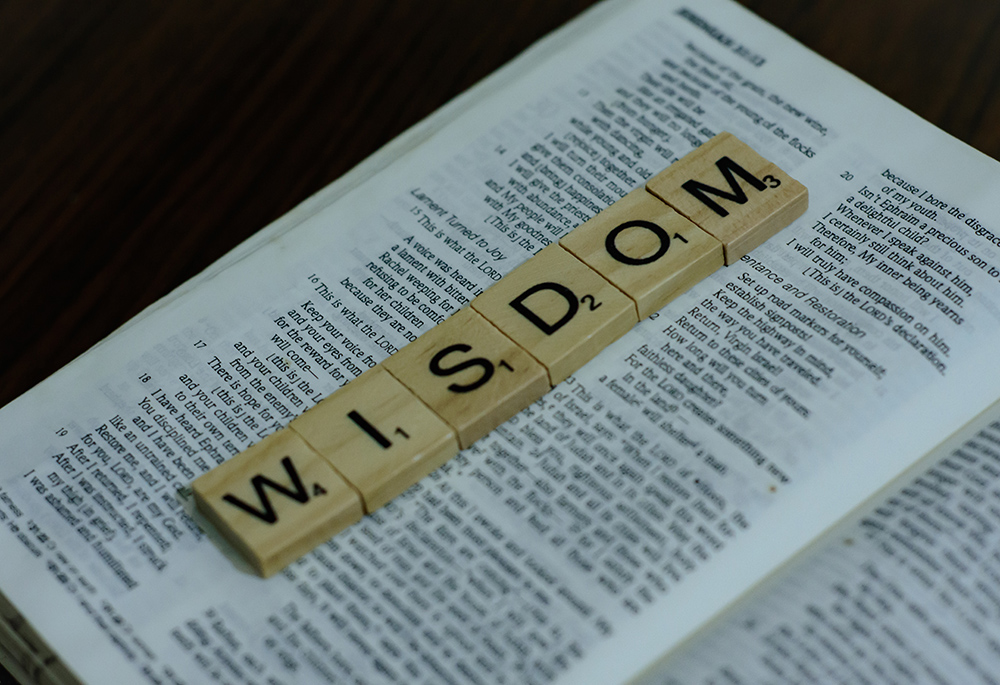
(Unsplash/Alex Shute)
One of the divisions of the Hebrew Bible is the Ketuvim, the Writings, or otherwise called Wisdom literature. The wisdom tradition is an ancient one, originating in Mesopotamia, Canaan and Egypt. Ancient Egyptian wisdom consisted of formal instructions and lessons taught by parents and elders to children in their communities and societies.
In the ancient cultures, of which Israel is a part, wisdom was oftentimes understood as either practical or speculative. Practical wisdom dealt with everyday attitudes, beliefs, customs, manners, forms of behavior, and economic, social, and ethical issues. This kind of wisdom was passed down from generation to generation through families, clans and tribes.
Speculative wisdom was more philosophical as people tried to make sense of natural disasters, untimely deaths, the dilemma of innocent suffering, and the irony of why injustice continued to prosper. The biblical cultures maintained that wisdom could be found in daily life, in the community, in the "marketplace," in all creation. The Hebrew word for wisdom is chokmah, a feminine noun, and sophia in Greek. The question for 21st-century readers is this: Do ancient stories and poems have any wisdom for us today, or are they merely dusty relics of past times that need to be buried? This Sunday's readings from the book of Kings and the Gospel of Matthew offers some perspectives on this question.
In 1 Kings 3:5, 7-12, the contents of a dream unfolds. Significant here is the role that dreams can play in the communication between humans and the divine. In the Bible, dreams may be symbolic, associated with invitations as in the call narratives, or serve as guidance from the divine to the human. Oftentimes, intuition, the highest form of intelligence, comes into play. In today's story from the Book of Kings, God and Solomon dialogue in a dream. The all-wise one extends an invitation: "Ask something of me and I will give it to you." The self-aware, reflective young leader, realizing his own inadequacies and sensing the gifts needed for leadership, asks for an understanding heart.
In a time of political strife, with empires jockeying for positions in the global arena, Solomon asks not for an increase of power, prestige, wealth or longevity. He asks instead for an understanding heart so that he can exercise proper judgment. This deed would likely include justice tempered with compassion and empathy, three virtues essential for good governance.
In essence, Solomon is asking for wisdom, and the all-wise one bestows the gift fully and deeply. This young leader, with a lot of self-knowledge, possesses the humility to ask for the gift most needed to be of service to the people without ruling "over" them. This dialogue that we readers are privileged to share showcases the internal character of Solomon. Some today might see him as an "old soul."
Advertisement
Unfortunately, this self-aware, reflective person who desires to do right by others cannot lead with his heart because the political structures of his day, together with the patriarchal and hierarchical cultures in place, would annihilate him. Hence, he falls prey to the cultural attitudes and leadership models of his day. For Solomon and the people to maintain their autonomy and independence among empires, he has to embrace hegemonic power, and thus Israel's power-driven monarchical leadership model persists until destroyed by the Babylonian empire that, in turn, continued to fuel hegemonic leadership. This leadership model continues because the wisdom inscribed in the dream story of Solomon has yet to be re-inscribed fully into the lives of leaders today, both young and old.
The story in Matthew's Gospel describes two people searching, one for a treasure buried in a field, and the other, a merchant, looking for fine pearls. The search is cast in a parable, a type of story found in Wisdom literature. The desired treasure is identified with the kingdom of heaven, better understood as the realm of the divine. "Kingdom" language reflects imperialism embedded in both the Old and New Testaments. What the three people are searching for is wisdom, the all-wise one, within us and all around us. The only requirement needed to discover wisdom is to be a seeker, like Solomon and the two Gospel characters.
In sum, today's readings offer the following wise lessons. Wisdom is a divine gift already given that can be deepened. Wisdom is a virtue necessary for astute governance and leadership. Models of leadership that do not function wisely, justly and compassionately to serve both human and non-human life need to be deconstructed and either transformed or dismantled altogether. Finally, are we seeking the pearl of great price or have we settled for "all that glitters"?






